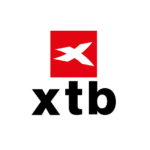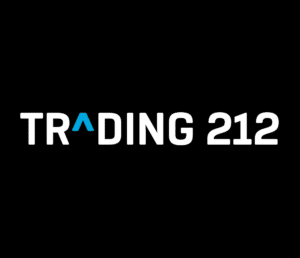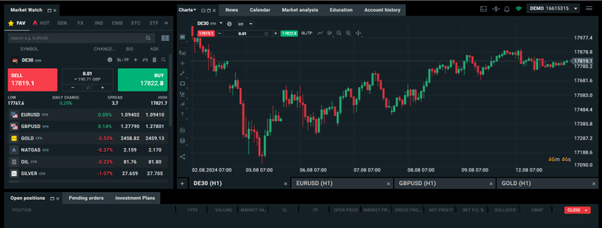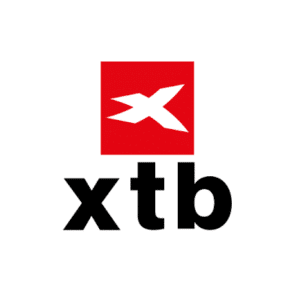What Are the Best Roth IRA Equivalents for UK Investors?

Thomas Drury
Co-Founder
Seasoned finance professional with 10+ years' experience. Chartered status holder. Proficient in CFDs, ISAs, and crypto investing. Passionate about helping others achieve financial goals.
Twitter ProfileAuthor Bio

Dom Farnell
Co-Founder
Dom, a Co-Founder at TIC, is an avid investor and experienced blogger who specialises in financial markets and wealth management. He strives to help people make smart investment decisions through clear and engaging content.
Twitter ProfileAuthor Bio
Fact Checked
How we test
At The Investors Centre, we pride ourselves on our rigorous fact-checking process. To delve deeper into our meticulous testing procedures and discover how we ensure accuracy and reliability, visit our dedicated page on how we test.
Risk Warning
Please note that the information provided by The Investors Centre is for educational purposes only and should not be considered financial advice. Always consult a professional before making any investment decisions.
Last Updated 15/03/2025
Discover our handpicked selection of trustworthy, regulated Investment Platforms, each thoroughly tested with real capital. All brokers are available to traders in the United Kingdom.
Quick Answer:
The Roth IRA, a tax-efficient retirement account, is only available to U.S. citizens. In the UK, the closest alternative is the Stocks and Shares ISA, which offers similar tax benefits for investment growth and withdrawals.

Featured Platform: eToro
- Copy Trading
- User Friendly Platform
- Regulated & Trusted
- 30 Million+ Users
Don’t invest unless you’re prepared to lose all the money you invest. This is a high-risk investment and you should not expect to be protected if something goes wrong. Take 2 mins to learn more.
What Is a Roth IRA and How Does It Work?
A Roth IRA (Individual Retirement Account) is a retirement savings account that offers unique tax advantages, making it a popular choice among US investors. Here’s a breakdown of how it works:
Tax-Free Growth
One of the primary benefits of a Roth IRA is that the investments grow tax-free. This means that any earnings, whether from dividends, interest, or capital gains, are not subject to taxes as long as they remain within the account. Over time, this can significantly boost the value of your retirement savings.
Contributions
Contributions to a Roth IRA are made with after-tax dollars. This means you don’t get a tax deduction when you put money into the account. However, because you’ve already paid taxes on these contributions, you won’t owe taxes on them again when you withdraw them in retirement.
Withdrawals
Withdrawals from a Roth IRA are also tax-free, provided you meet certain conditions. You must be at least 59.5 years old and have held the account for at least five years to qualify for tax-free withdrawals of earnings. However, you can withdraw your contributions at any time without penalties or taxes, offering great flexibility.
No Required Minimum Distributions
Unlike traditional IRAs, Roth IRAs do not have required minimum distributions (RMDs). This means you are not forced to withdraw money at a certain age, allowing your investments to continue growing tax-free for as long as you like.
What Are the Best Roth IRA Alternatives for UK Investors?
While the Roth IRA offers significant benefits, it is only available to US taxpayers.

Fortunately, UK investors have access to equivalent investment accounts that provide similar tax advantages.
Stocks & Shares ISA
The Stocks & Shares Individual Savings Account (ISA) is a top alternative for UK investors. Here’s why:
Tax-Free Growth and Withdrawals: Similar to a Roth IRA, any growth within a Stocks & Shares ISA is tax-free. Additionally, withdrawals are also tax-free, providing significant tax savings over the long term.
Higher Contribution Limits: For the 2024/2025 tax year, you can contribute up to £20,000 across all your ISAs, which is significantly higher than the Roth IRA’s contribution limits.
Flexible Investment Options: Stocks & Shares ISAs allow you to invest in a wide range of assets, including stocks, bonds, mutual funds, and ETFs. This flexibility can help you build a diversified portfolio tailored to your financial goals.
Self-Invested Personal Pension (SIPP)
Another excellent alternative is the Self-Invested Personal Pension (SIPP). Here’s how it compares:
Tax Relief on Contributions: Contributions to a SIPP receive tax relief at your marginal rate, meaning the government effectively adds to your retirement savings. This can make a significant difference in the amount you can save over time.
Wide Range of Investments: SIPPs offer a broad selection of investment options, including stocks, bonds, funds, and even direct property investments. This variety allows you to create a retirement portfolio that meets your specific needs and risk tolerance.
Long-Term Retirement Focus: SIPPs are designed for long-term retirement savings. You can start withdrawing from your SIPP at age 55 (rising to 57 by 2028), with 25% of your pension pot available as a tax-free lump sum. The remaining 75% is subject to income tax.
The Best Stocks ans Shares ISA Platforms
What is a Stocks and Shares ISA?
A Stocks and Shares ISA is a tax-efficient investment account that allows UK residents to grow their savings without paying capital gains or income tax on returns. It provides access to various investment options, including stocks, bonds, and funds.
Ranked List of Platforms
- XTB – Best Overall Stocks and Shares ISA Platform
- IG
- Interactive Brokers (IBKR)
- Saxo Bank
- Trading 212
If you’re looking to grow your investments tax-efficiently, check out our in depth guide to the best Stocks and Shares ISAs in the UK to find the top platforms for UK investors.

XTB – Best for ETF Trading Beginners
| Platform | Buy/Sell Fees | Platform Cost | Min Deposit | ISA? | Interest on Uninvested Cash | Platform Rating | Beginner Rating |
|---|---|---|---|---|---|---|---|
| XTB | None | None | £0 | Yes | None | 8/10 | 8/10 |
Pros and Cons
- Competitive fees
- User-friendly platform
- Extensive market access
- Limited research tools compared to some competitors
- No access to mutual funds
Ease of Use
XTB offers a clean, intuitive interface suitable for beginners and experienced investors. Its mobile and web platforms provide seamless navigation, real-time data, and efficient order execution.
Fees
| Fee Type | Cost |
|---|---|
| Buy/Sell Shares | None |
| Platform Fee | None |
| Minimum Deposit | £0 |
| Interest on Cash | None |
Getting Started
- Sign up on XTB’s website and verify your identity.
- Deposit funds via bank transfer or card.
- Select investments from available stocks, ETFs, and other assets.
- Monitor and manage your portfolio using XTB’s trading tools.
73% of retail investor accounts lose money when trading CFDs with this provider. You should consider whether you can afford to take the high risk of losing your money.
What Makes Roth IRA So Popular in the US?

From my experience, the Roth IRA is incredibly popular in the US because of its unique tax benefits. One of the biggest draws is the ability for investments to grow tax-free. This means that any earnings on the investments within a Roth IRA are not taxed, which can significantly increase the overall return over time.
Another major advantage is the tax-free withdrawals. Unlike traditional IRAs, Roth IRAs allow for tax-free withdrawals in retirement, as long as certain conditions are met. This can provide a great deal of financial security and predictability, knowing that your future withdrawals won’t be subject to taxes.
Flexibility is another reason why Roth IRAs are favored. Contributions to a Roth IRA can be withdrawn at any time without penalty, making it a versatile tool for both retirement savings and other financial goals. This flexibility can be particularly appealing to younger investors who might need access to their savings before retirement.
Finally, there are no required minimum distributions (RMDs) with a Roth IRA, which means you aren’t forced to withdraw money at a certain age. This allows for more strategic retirement planning, enabling the account to continue growing tax-free for as long as you choose.
Why Can’t UK Investors Use Roth IRA?
UK investors cannot use a Roth IRA because it is a retirement savings account specifically designed for US taxpayers. The US tax code offers these specific benefits to encourage American citizens to save for retirement. Since the Roth IRA is tied to the US tax system, only those who pay taxes in the US can take advantage of it.
The UK has a different tax structure and set of regulations governing retirement accounts. The tax incentives and rules that apply to Roth IRAs are not compatible with UK tax laws. Therefore, UK residents need to look for equivalent investment vehicles within their own tax system that offer similar benefits.
In the UK, alternatives like the Stocks & Shares ISA and the Self-Invested Personal Pension (SIPP) provide similar tax advantages. These accounts are tailored to the UK tax environment, offering tax-free growth and other benefits that can be compared to those of the Roth IRA. It’s essential for UK investors to utilize these locally available options to optimize their retirement savings and investment strategies.
How Do Stocks & Shares ISAs Work as Roth IRA Equivalents?
Tax-Free Growth and Withdrawals
Stocks & Shares ISAs are a popular choice among UK investors due to their tax advantages. Similar to a Roth IRA, any growth within a Stocks & Shares ISA—whether from dividends, interest, or capital gains—is tax-free. This means your investments can grow without being diminished by taxes, which can significantly enhance your long-term returns.
Flexible Contributions and Withdrawals
For the 2024/2025 tax year, you can contribute up to £20,000 across all your ISAs. Contributions are made with post-tax income, so there’s no upfront tax relief. However, the major benefit is that withdrawals from a Stocks & Shares ISA are completely tax-free, offering flexibility and ease of access to your funds at any time without penalties.
Diverse Investment Options
Stocks & Shares ISAs allow you to invest in a wide range of assets, including stocks, bonds, mutual funds, ETFs, and investment trusts. This flexibility enables you to build a diversified portfolio that aligns with your financial goals and risk tolerance.
| ISA Type | Eligibility | Contribution Limits (2024/2025) | Asset Types | Government Support | Suitability |
|---|---|---|---|---|---|
| Cash ISA | UK residents aged 18 and over | £20,000 (across all ISAs) | Cash | None | Short-term savings, low risk tolerance |
| Stocks & Shares ISA | UK residents aged 18 and over | £20,000 (across all ISAs) | Stocks, bonds, mutual funds, ETFs | None | Medium to long-term investment goals, higher risk tolerance |
| Lifetime ISA (LISA) | UK residents aged 18 to 39 | £4,000 | Cash or stocks and shares | 25% bonus on contributions, up to £1,000 per year | First-time homebuyers or retirement savings |
| Junior ISA (JISA) | Under 18s (opened by parent/guardian) | £9,000 | Cash or stocks and shares | None | Long-term savings for children's future |
What Makes Self-Invested Personal Pensions (SIPPs) a Good Alternative?
Tax Relief on Contributions
One of the main advantages of SIPPs is the tax relief on contributions. When you contribute to a SIPP, the government adds 20% tax relief to your contributions. Higher and additional rate taxpayers can claim even more tax relief through their tax returns. This effectively boosts your retirement savings.
Broad Investment Options
SIPPs offer a wide range of investment choices, much broader than typical employer pension schemes. You can invest in stocks, bonds, funds, and even direct property investments. This variety allows you to tailor your retirement portfolio to your specific needs and preferences.
Long-Term Retirement Savings
SIPPs are designed for long-term retirement savings. You can begin withdrawing from your SIPP at age 55 (rising to 57 by 2028), with 25% of your pension pot available as a tax-free lump sum. The remaining 75% is subject to income tax. This structure encourages saving for retirement while providing significant tax advantages.
How Do Roth IRA, Stocks & Shares ISAs, and SIPPs Compare?
| Feature | Roth IRA | Stocks & Shares ISA | SIPP |
|---|---|---|---|
| Suitability | Long-term retirement savings | Medium and long-term savings and investments | Long-term retirement savings |
| Eligibility | US residents; income restrictions apply | UK residents aged 18 and over | UK residents; withdraw from age 55 (57 by 2028) |
| Asset Types | Stocks, bonds, mutual funds, ETFs | Stocks, bonds, mutual funds, ETFs, investment trusts | Wide range, including stocks, bonds, funds, property |
| Tax Benefits | Tax-free growth and withdrawals | Tax-free growth and withdrawals | Tax-free growth and 25% tax-free withdrawal |
| Contribution Tax Relief | None | None | Tax relief on contributions |
| Withdrawal Rules | Tax-free after age 59.5; penalties for early withdrawal | Full flexibility - Tax-free at any time; no penalties | 25% tax-free; remaining taxed as income; penalties if early |
| Minimum Investment | Varies by provider; often none | Typically none | Varies by provider |
Which Is Better: Stocks & Shares ISA or SIPP?
Choosing between a Stocks & Shares ISA and a Self-Invested Personal Pension (SIPP) depends on your financial goals and needs.
Stocks & Shares ISA:
- Flexibility: Offers tax-free growth and withdrawals at any time without penalties, making it ideal for medium to long-term savings beyond retirement.
- Contribution Limits: You can contribute up to £20,000 annually. While there’s no immediate tax relief, all growth and withdrawals are tax-free.
- Accessibility: Funds are easily accessible, providing financial flexibility for emergencies or other needs.
SIPP:
- Retirement Focus: Designed specifically for retirement savings, offering significant tax relief on contributions.
- Higher Contribution Limits: Up to £40,000 annually or 100% of earnings, with tax relief at your marginal rate, enhancing your savings.
- Long-Term Savings: Funds are locked until age 55 (rising to 57 by 2028), ensuring preservation for retirement.
- Tax Benefits: 25% of the savings can be withdrawn tax-free at retirement, with the remainder subject to income tax.
Ultimately, the choice depends on your need for flexibility versus the goal of maximizing retirement savings with tax benefits. Combining both can offer a balanced approach to achieving various financial goals.
FAQs
A Roth IRA is a US-based retirement account that offers tax-free growth and withdrawals after age 59.5. It is popular because contributions are made with after-tax dollars, meaning withdrawals, including investment gains, are tax-free in retirement.
Roth IRAs are exclusively available to US taxpayers. The UK has different tax laws and retirement savings schemes, making Roth IRAs inaccessible to UK residents. Instead, UK investors can use equivalent tax-efficient accounts like ISAs and SIPPs.
The best Roth IRA alternatives for UK investors are the Stocks & Shares ISA and the Self-Invested Personal Pension (SIPP). Both offer tax-efficient savings, with ISAs providing flexible, tax-free withdrawals and SIPPs offering tax relief on contributions and long-term retirement growth.
Stocks & Shares ISAs allow UK investors to save and invest up to £20,000 annually with tax-free growth and withdrawals. They offer a wide range of investment options, including stocks, bonds, and funds, providing flexibility and ease of access to funds.
SIPPs offer tax relief on contributions, a wide array of investment choices, and are designed for long-term retirement savings. Investors can contribute up to £40,000 annually, and 25% of the pension pot can be withdrawn tax-free at retirement age.
Top 5 ISA Platforms
1

XTB
73% of Retail CFD Accounts Lose Money
2

IG
71% of Retail CFD Accounts Lose Money
3

IBKR
The inclusion of Interactive Brokers’ (IBKR) name, logo or weblinks is present pursuant to an advertising arrangement only. IBKR is not a contributor, reviewer, provider or sponsor of content published on this site, and
is not responsible for the accuracy of any products or services discussed.
4

Saxo
Capital at risk.
5

Trading 212
Capital at risk.
73% of Retail CFD Accounts Lose Money






